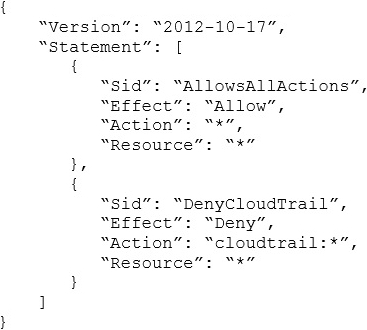

A company with several AWS accounts is using AWS Organizations and service control policies (SCPs). An Administrator created the following SCP and has attached it to an organizational unit (OU) that contains AWS account 1111-1111-1111:
Developers working in account 1111-1111-1111 complain that they cannot create Amazon S3 buckets. How should the Administrator address this problem?
walkwolf3
Highly Voted 3 years, 6 months agojoe16
3 years, 5 months agoWaiweng
Highly Voted 3 years, 7 months agoKondon200
Most Recent 1 year, 5 months agoevargasbrz
2 years, 3 months agomrgreatness
2 years, 6 months agodmscountera
2 years, 6 months agojj22222
3 years agotkanmani76
3 years, 4 months agoAzureDP900
3 years, 4 months agoryu10_09
3 years, 4 months agomnsait
4 months, 2 weeks agoandylogan
3 years, 6 months agoAWSum1
3 years, 6 months agoAWSum1
3 years, 6 months agotekkart
3 years, 6 months agoAWS_Noob
3 years, 6 months agoWhyIronMan
3 years, 6 months agoCarisB
3 years, 7 months agocertainly
3 years, 7 months agogsw
3 years, 7 months ago